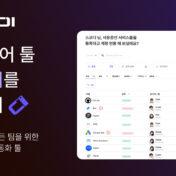1. KT Telecom Announces 100Bn won Fund for Content startups
Korea's telecom giant KT will create a 100Bn won fund to support content related startups. Of the 100Bn won, 60Bn won will be allocated to investment-type funds and 40Bn won allocated to loans.
The funds, to be managed by KT Media Hub, will be used primarily in the motion picture & drama (30Bn won), music (15Bn won), and games & e-books (15Bn won). The fund will be invested by KT (50Bn won), Michigan Venture Capital and other fund management firms (30Bn won), and the Industrial Bank of Korea (20Bn won).
President of KT Media Hub, Kim Joo-sung, said, "We have decided to form the fund to create an ecosystem where small content startups can flourish. We will support the whole range of processes from production to distribution and sales for small startups to create high-quality contents."
2. President elect Promises to boost vital M&A activity
South Korean President-elect Park has proposed a plan to boost M&A activities among small and SMBs in an attempt to revive the start-up boom. The plans include raising the rate of income tax credit for angel investors from 20% to 30. This measure falls in line with Park’s pre-election promise of bolstering M&A activities among SMBs to nurture venture businesses and assist proactive SMBs.
M&A deals promote inorganic growth worldwide, but in most Korean cases companies are put up for sale only when on the verge of bankruptcy. This is demonstrated in the fact that a meager 7.4% invested funds are recouped in M&A deals in Korea against 92.6% of recouped funds through IPO (KVCA data).
The problem, is there is a slim chance for venture companies being listed and the time to IPO is increasing (11.3 years in 2009, 12.2 years in 2010 and 14.3 years in 2011 according to KRX data).
3. Korean customers increasingly happy to pay for mobile apps
Despite global economic ‘issues’, the mobile app market enjoyed robust growth last year thanks to the increase in settlement rates for for-fee applications.
Data from a recent Korea-wide survey conducted by Podgate and KTH indicates that 43% of iPhone users had installed paid apps within the past one month, followed by Android users at 32%, up 7 and 6 percentage points, respectively, from the previous quarter.
During every quarter of 2012, “free or not-free” was picked as the factor that generates the biggest impact on the decision of whether or not to install the apps. The share of those who selected this factor as the biggest variable, however, has declined from 80 percent in the first quarter to 75 percent in the fourth quarter.
4. More LTE Means Larger Platform for App Developers
LG U+, Korea’s third largest mobile carrier, passed 10Tn won in annual sales for the first time last year thanks to its efforts to proliferate 4G LTE services. This represents that the mobile space, within which space many of the most innovative and adventurous startups preside will also continue to grow apace in 2013.
LG U+ announced that it achieved sales of 10.9Tn won with an operating income of 7.01Tn won, up 9.2% year-on-year.
Key factors behind this sales growth included outstanding performance in the LTE service market, on top of relatively strong performance in the fixed-line service market.
5. South Korea’s IPO Market Set To Double In Size This Year
The countries IPO market is forecast to at least double in size this year. Last year saw very sluggish movement as companies withdrew applications for listing on the nation’s stock exchange over fears of low valuations on account of the global economic crisis. However, it is expected that the situation will take a dramatic upward turn this year.
In 2012 only 28 companies were newly listed, with the total value of 1Tn won in 2012 (10% of 2010).





